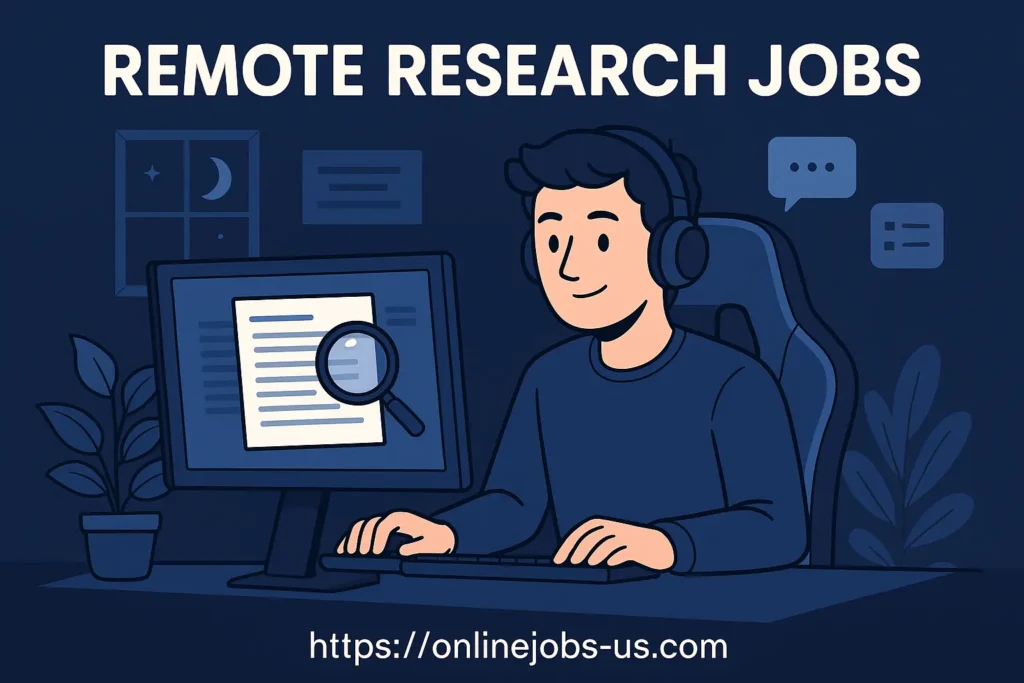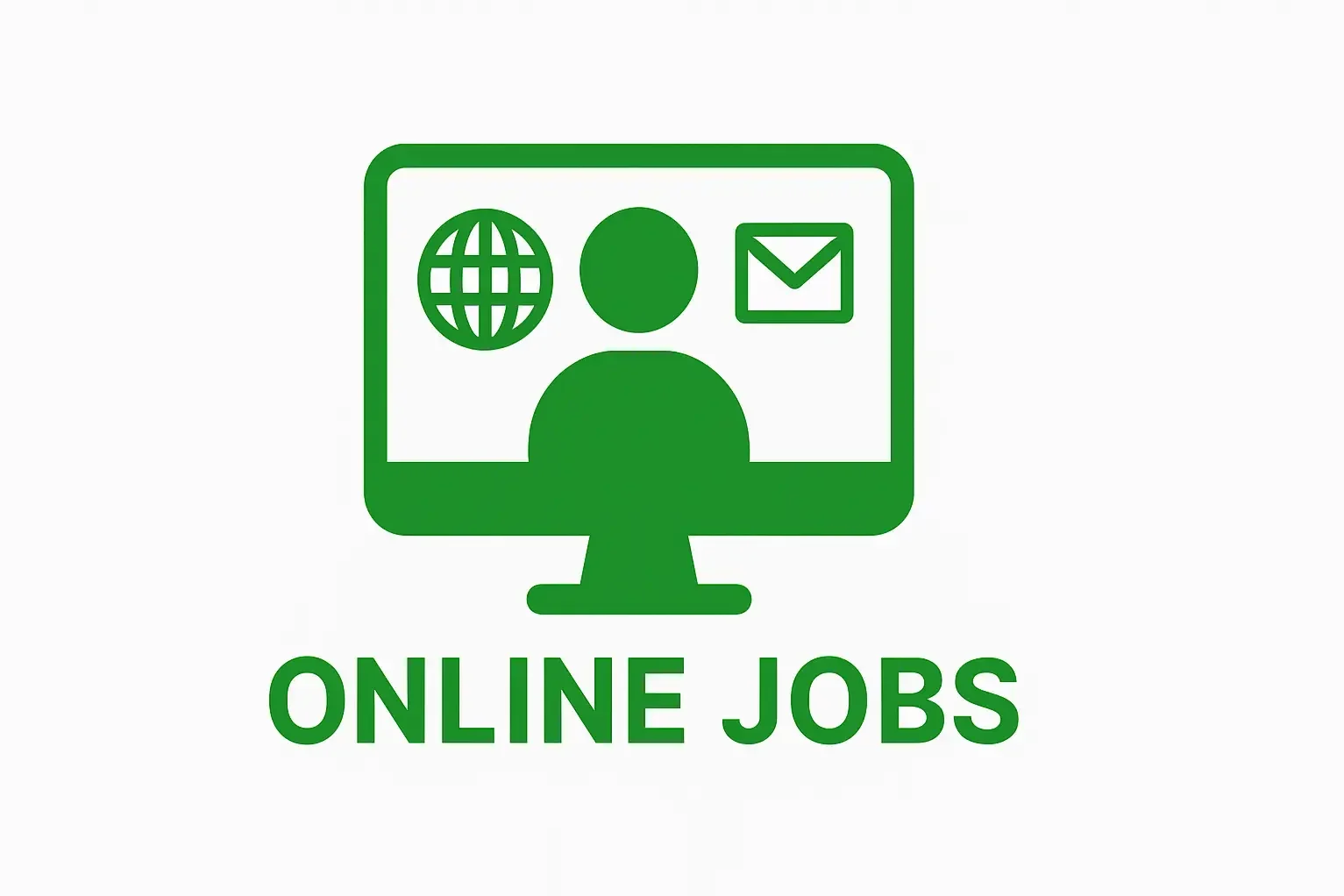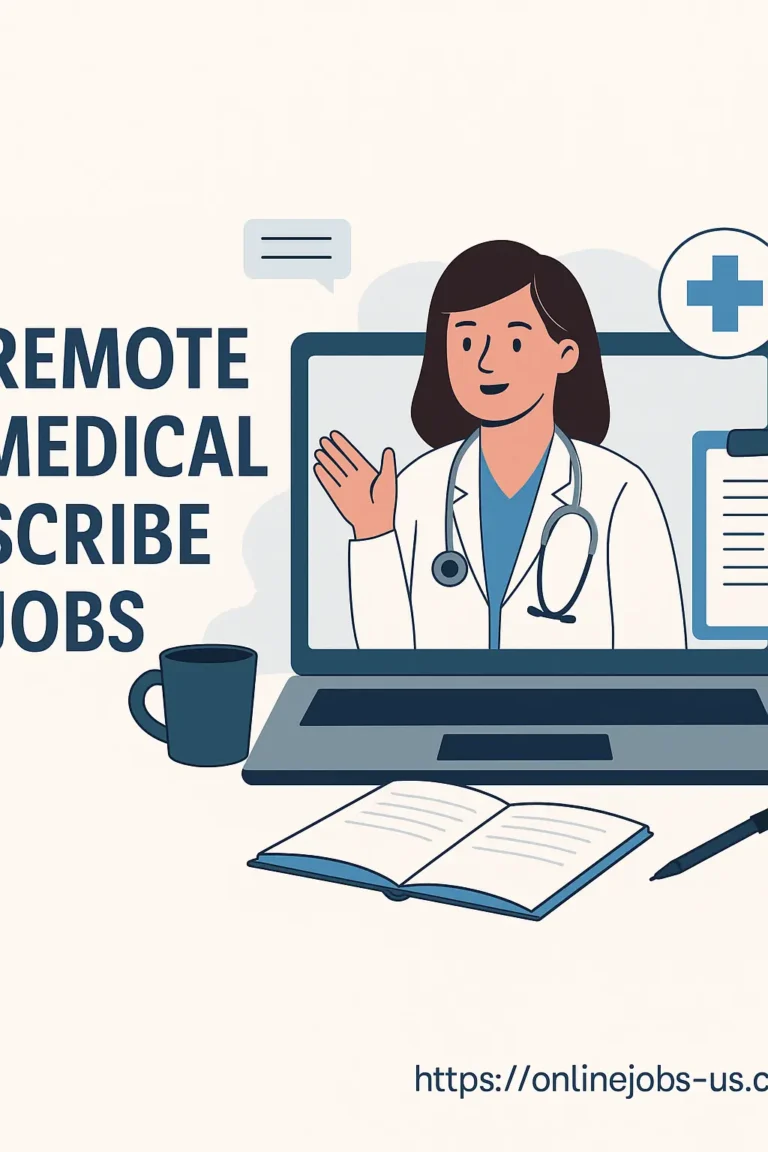Remote Research Jobs

Remote Research Jobs in 2025: A Deep Dive into a Growing Career Frontier
Remote work has permanently reshaped the global workforce, and research-based roles are at the forefront of this transformation. In 2025, remote research jobs span diverse fields—from UX and market research to academic studies and data analytics. These roles are no longer limited to elite labs or corporate headquarters. Now, professionals with analytical minds, digital literacy, and strategic thinking can conduct research from virtually anywhere.
Whether you’re a seasoned analyst or a curious newcomer to the field, this article explores the expanding world of remote research jobs: where to find them, which skills are most valuable, and how various industries are shaping their remote research operations.
The Expanding Scope of Remote Research Roles
The traditional image of a researcher—surrounded by papers in a university library or huddled over equipment in a lab—has evolved. Today, research is data-driven, collaborative, and often decentralized. With tools for remote collaboration, cloud computing, and digital surveys, much of the research process can now occur online.
Here are three of the most prominent sectors offering remote research roles:
1. UX Research (User Experience Research)
UX research focuses on understanding how users interact with digital products, with the goal of improving usability, satisfaction, and accessibility. As more companies digitize their services, the demand for UX researchers has exploded.
Typical Responsibilities:
- Conducting user interviews and usability tests
- Analyzing user behavior through data (heatmaps, session recordings)
- Synthesizing findings into actionable insights for design teams
Remote Tools Used:
- Lookback, Maze, UserTesting (for user interviews & testing)
- Dovetail, Aurelius (for research analysis and synthesis)
- Slack, Notion, and Miro (for collaboration and documentation)
Ideal Skillsets:
- Psychology, human-computer interaction (HCI), or design background
- Interviewing and survey skills
- Ability to translate qualitative findings into product recommendations
Industries Hiring UX Researchers:
- Tech startups
- E-commerce platforms
- Fintech and health tech firms
2. Academic and Scientific Research
Academic institutions and independent research firms increasingly offer remote roles for assistants, collaborators, or data specialists—especially in fields reliant on computational or literature-based work.
Typical Responsibilities:
- Literature reviews and meta-analyses
- Data collection from public or academic databases
- Statistical modeling and paper drafting
Remote Tools Used:
- Zotero, EndNote (for citations and bibliography)
- R, Python, SPSS (for statistical analysis)
Ideal Skillsets:
- Advanced degree or enrollment in a research-based academic program
- Familiarity with academic publishing formats
- Ability to conduct systematic reviews and synthesize large datasets
Common Employers:
- Universities and public research labs
- Think tanks (Brookings Institution, RAND Corporation)
- Scientific journals and editorial boards
3. Product and Market Research
Companies rely heavily on researchers to understand market trends, competitor strategies, and customer preferences. Remote product researchers help bridge the gap between product development and consumer needs.
Typical Responsibilities:
- Analyzing customer feedback and competitor offerings
- Conducting surveys and focus groups
- Creating market reports or business intelligence dashboards
Remote Tools Used:
- Qualtrics, SurveyMonkey, Google Forms (for survey deployment)
- Tableau, Power BI (for data visualization)
- Crunchbase, SimilarWeb (for market landscape analysis)
Ideal Skillsets:
- Business or marketing background
- Quantitative and qualitative data analysis
- Strong communication and reporting skills
Industries Hiring Product Researchers:
- SaaS companies
- Consumer goods firms
- Digital agencies and marketing consultancies

Skills That Make You Competitive in Remote Research
Remote researchers must do more than just “know their stuff.” They need to communicate clearly, work independently, and adapt to fast-paced digital environments. Below are the key technical and soft skills that hiring managers look for in 2025:
Core Technical Skills
- Data analysis & statistics: Proficiency in Excel, SQL, Python, or R is often required for roles involving data interpretation.
- Survey design: Knowing how to ask the right questions and interpret responses is essential in UX and market research.
- Research writing: The ability to distill complex findings into readable reports is a high-value asset.
- Qualitative analysis: Coding interview transcripts or open-ended feedback using thematic analysis or grounded theory.
Soft Skills
- Autonomy: Remote researchers must manage their own time and meet deadlines without daily oversight.
- Communication: Explaining research to non-experts (designers, marketers, stakeholders) is vital.
- Curiosity & critical thinking: A great researcher asks the right questions, not just any questions.
Top Companies Hiring Remote Researchers in 2025
With hybrid and fully remote work becoming normalized, an increasing number of employers are hiring research talent from around the world. Here are some companies (and institutions) leading the charge in remote research hiring:
1. Google UX and Research Labs
- Continues to hire UX researchers globally.
- Remote contractors and full-time roles available.
- Highly competitive but offers mentorship and resources.
2. GitLab
- A pioneer in all-remote company culture.
- Frequently hires user and product researchers.
- Transparent pay scales and documentation-based processes.
3. Meta (Remote Research Programs)
- Particularly focused on AR/VR usability research.
4. Coursera and EdTech Startups
- Regularly hire academic researchers and content specialists.
- Often need remote contributors for course development and assessments.
5. NielsenIQ and Kantar
- Giants in consumer research and market insights.
- Flexible, project-based roles available worldwide.
6. Upwork & Toptal (Freelance Projects)
- While not companies per se, these platforms allow researchers to find freelance or part-time research roles in product development, business strategy, or academic collaborations.
Building a Career Path in Remote Research
Many professionals begin their research careers through internships, freelance gigs, or assistantships, often combining formal education with hands-on experience. Here’s how to chart a clear trajectory:
Entry-Level (0–2 Years)
- Freelance user interviews or survey projects
- Academic assistant or data entry roles
- Internships at remote startups or non-profits
Mid-Level (3–7 Years)
- Specialize in UX, product, or academic research
- Contribute to published papers or case studies
- Begin presenting findings at conferences or webinars
Senior-Level (8+ Years)
- Lead research departments or cross-functional teams
- Mentor junior researchers and interns
- Develop methodologies and influence company strategy
Success Case: Maya, a Remote Product Researcher
Name: Maya Solano
Background: Bachelor’s in Sociology, MBA in progress
Location: Buenos Aires, Argentina
Role: Remote Product Researcher at a U.S.-based SaaS firm
Maya began as a freelance UX survey designer on Upwork during the pandemic. Her strong communication skills and fast turnaround times quickly gained attention. By 2023, she was working remotely for a mid-size SaaS firm focused on productivity tools. Today, in 2025, she leads a four-person research team, coordinating product testing and feature rollout validation—all remotely.
“The key,” Maya says, “was learning to communicate insights visually. I used to just hand over spreadsheets, but when I started combining charts, heatmaps, and narrative summaries, I became a trusted voice in product decisions.”
Maya’s journey highlights a powerful truth: the barrier to entry for remote research jobs is lower than ever, but excellence is still rewarded.
Best Tools and Platforms for Remote Research Jobs
To thrive in remote research, you’ll need a well-equipped digital toolkit.
Communication & Collaboration
- Slack – Team communication
- Notion – Knowledge management and documentation
- Miro – Visual brainstorming and journey mapping
Research-Specific Tools
- UserTesting, Maze, Optimal Workshop – UX research
- Typeform, Qualtrics, SurveyMonkey – Market and product research surveys
Data and Visualization
- Excel, R, Python, SQL – Data processing
- Tableau, Power BI, Looker Studio – Visual dashboards
- Figma – Prototyping for product testing and feedback loops
Short FAQ
Q1: Do I need a PhD to work in remote research?
A: Not at all. While academic research often values advanced degrees, fields like UX, product research, and marketing prioritize practical experience, portfolios, and analytical thinking. Certifications and short courses can supplement your qualifications.
Q2: What’s the best way to transition into remote research from another field?
A: Start by identifying transferable skills—such as analytical writing, customer insight, or data handling—and build a portfolio with real or mock research projects. Platforms like Coursera, LinkedIn Learning, and edX offer specialized courses to help bridge the gap.
Final Thoughts
Remote research jobs offer a rich career path for those who enjoy asking questions, discovering insights, and helping others make data-informed decisions. In 2025, this field is more dynamic, more accessible, and more impactful than ever.
Whether you’re decoding user behavior, analyzing academic trends, or shaping product direction, there’s space in this remote landscape for researchers who are curious, skilled, and adaptable. The only thing standing between you and a fulfilling research career may be a strong internet connection—and your next opportunity.






